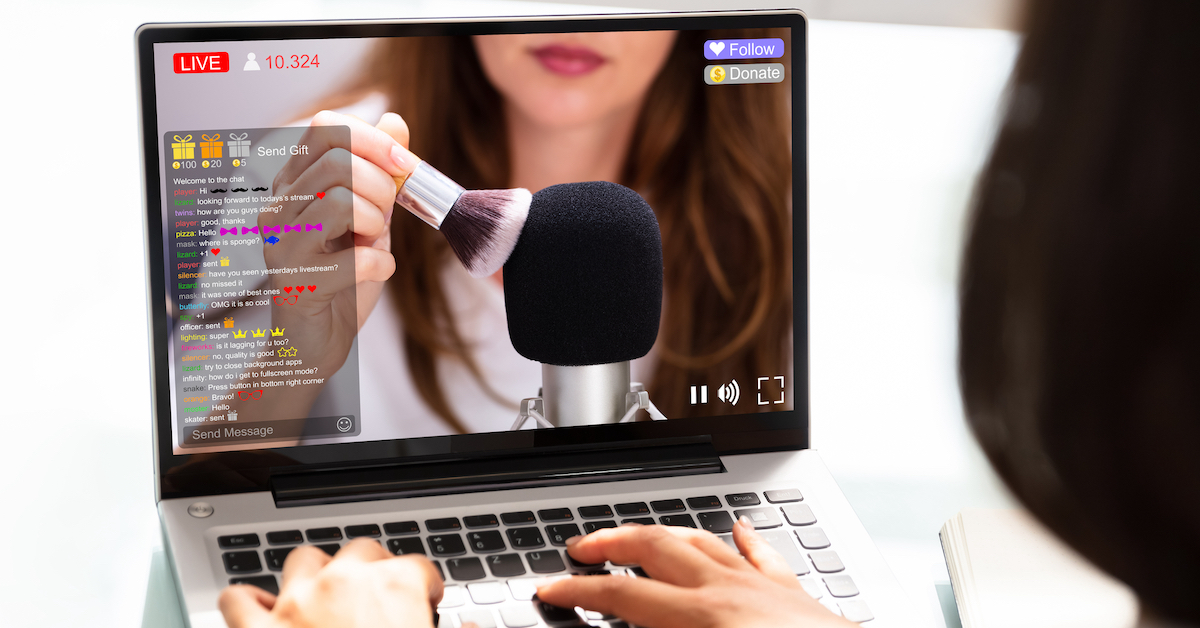A seemingly odd trend came into existence about a dozen years ago. People began watching videos showing someone receiving a massage or having their hair brushed. Other videos included watching a person talking in whispers or tapping their fingers. Yet another could be watching someone slowly fold a towel.
Those who watch these strange videos say it helps them to relax, promotes sleep, and lowers stress. Turns out, for many people, this is true because this video trend triggers a phenomenon called Autonomous Sensory Meridian Response or ASMR. As the latest research shows, ASMR can be good for your brain.
Research shows that watching ASMR videos is not only engaging for many people, but it triggers a positive physical reaction. According to scientists, watching ASMR videos provokes in some a pleasant tingling sensation that starts in the scalp and neck and then spreads to the rest of the body. This is believed to be deeply relaxing.
Of course, not everybody is able to experience this sensation, but estimates range from one person in five to many more.
ASMR Triggers the Brain’s Reward System
For devotees of ASMR, the practice has been likened to the tingling sensation that listening to music can provide. Brain scans show both activities switch on areas of the brain linked to the reward system. But those who perform ASMR insist they are distinct because music evokes awe and involves rapidly evolving tingles across the whole body that can be stimulating, while in ASMR the tingling sensation is different and elicits relaxation.
Their experience is borne out by scans that show activity in another area of the brain is heightened with music but lowered during ASMR. Research in this area is sparse so a group of psychologists from the United Kingdom tried to find out why some people experience tingles while others don’t, and whether ASMR is linked to certain personality traits, or if it could be used as a therapeutic tool in the treatment of anxiety.
Alleviates Anxiety Among Those Who Feel the Tingle
For their study they recruited 36 volunteers who experience a physical response from ASMR and 28 people who don’t. Each participant watched a five-minute video designed to trigger an ASMR response.
Since an earlier study linked ASMR to neuroticism – a tendency towards depression, self-doubt, and other negative emotions – participants also completed a questionnaire to measure these feelings.
The participants also completed a second questionnaire to evaluate their tendency to experience trait anxiety, the type that’s enduring, and state anxiety, which refers to the level of moment-to-moment anxiety.
These questionnaires showed that before watching the video, those who experience a physical reaction through ASMR had higher levels of neuroticism and both forms of anxiety. After watching the video, they had significantly lower levels of state anxiety and reported greater benefits than those who were not affected by ASMR and who saw no reduction in state anxiety.
The results showed that anxiety can be alleviated among individuals able to experience a physical reaction from ASMR. However, after further analysis it seems that even those who do not appear to be affected by ASMR can benefit as well.
Helps Non-Tinglers Too!
When the psychologists crunched the numbers some more, they found that among those with an overall propensity to experience anxiety, watching the video, even without feeling the “tingle”, can still be beneficial in reducing anxiety.
Summing up what their research showed, lead author Joanna Greer wrote, “ASMR could have potential as an alternative treatment for anxiety. So, if people are prone to neuroticism and/or anxiety, they may benefit from watching ASMR – even if they don’t routinely watch ASMR videos or experience ASMR tingles.”
If you suffer from anxiety or are experiencing chronic stress, I’d recommend trying ASMR. It’s an easy, side-effect free—and free—treatment. If you’ve never watched one of these videos and want to test whether this phenomenon will help alleviate anxiety and promote relaxation, just search ASMR on YouTube; you’ll find many to choose from.







